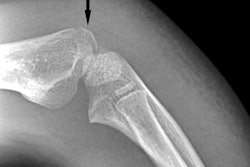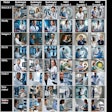
The use of a "radiology extender" (RE) -- a technologist who prereads basic x-ray exams -- improves a radiology department's workflow and also boosts the job satisfaction of its radiologists, according to a study published online May 8 in the Journal of the American College of Radiology.
For experienced radiologists, reading plain film x-rays is often repetitive and reduces their job satisfaction, wrote a team led by Arijitt Borthakur, PhD, of the University of Pennsylvania. After its radiologist staff repeatedly expressed dissatisfaction with this work, the university's musculoskeletal section recruited a radiologic technologist from the department to preread musculoskeletal films. The group then tracked any changes in the performance of the radiologists.
The RE was trained in a similar manner to radiology residents, with one-on-one review of cases he had read, radiologic texts, and an online course. Six radiologists participated in the study, reading a median of 24 cases under three conditions: alone, sitting alongside the RE and then signing off on the report, and reviewing the case separately from the RE and then signing off on the RE's report. Borthakur and colleagues then analyzed the flow rate (number of cases per minute) of the radiologists under each condition.
The researchers found that the department's flow rate improved significantly (p < 0.001) when radiologists evaluated RE-read cases either alongside the RE or separately.
| Effect of radiology extender on department workflow | |||
| Radiologist alone | Radiologist review separate from radiology extender | Radiologist review alongside radiology extender | |
| Mean flow rate (cases per minute) | 0.62 | 1.31 | 1.33 |
"We suspect that improved flow rates of radiologists [with the use of an RE] could lead to additional revenue from time gained," the group wrote.
Using a radiology extender can improve radiologists' job satisfaction by giving them the opportunity to spend more time on higher-complexity studies as well as mentor the RE, the group noted. And the position offers technologists a way to advance in their careers, Borthakur and colleagues wrote.
"We envision that the RE role will become ubiquitous over time and will significantly impact the practice of radiology in the U.S.," they concluded.




















